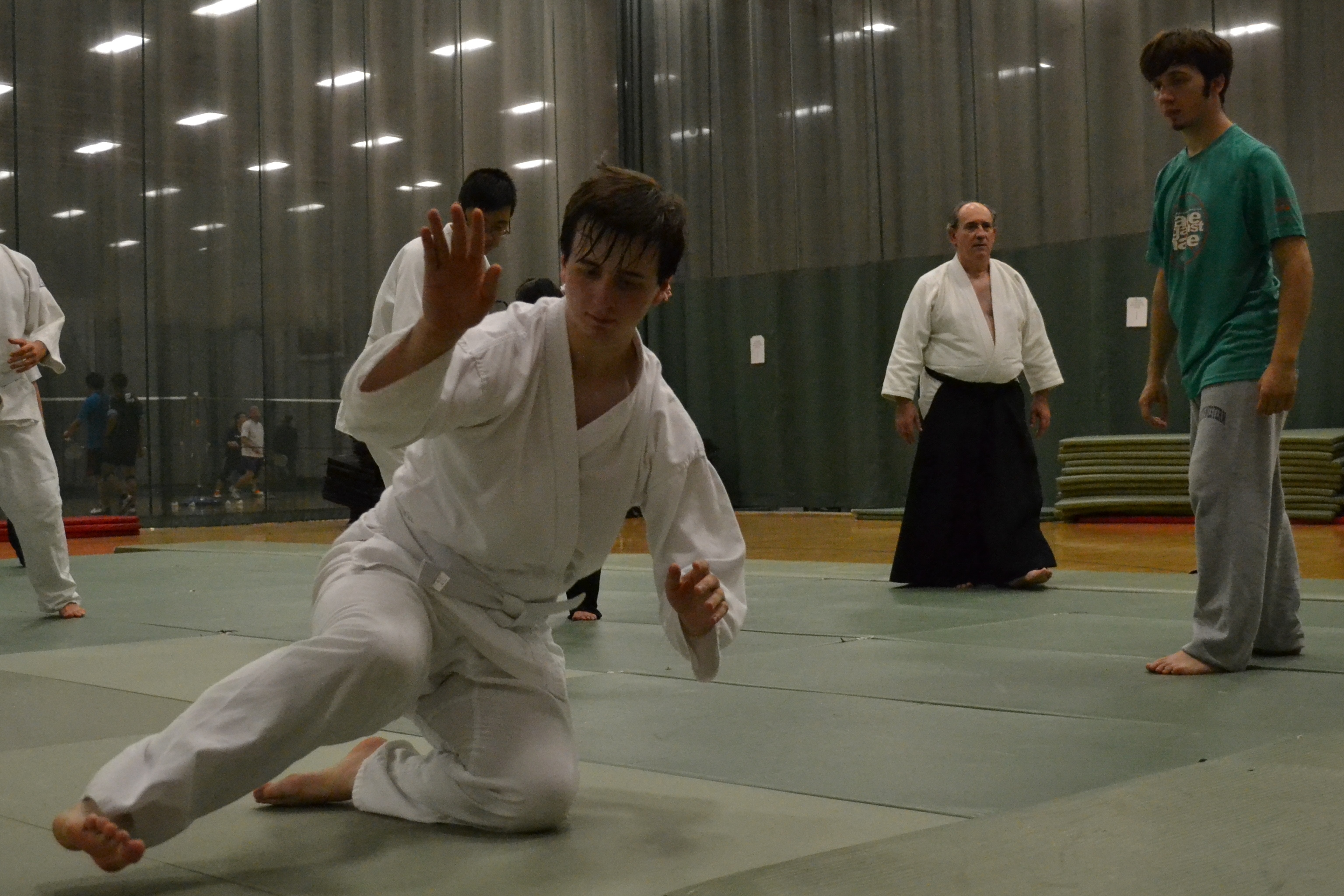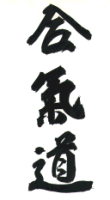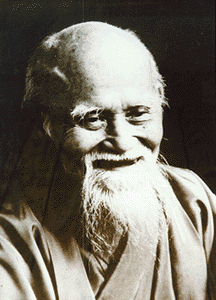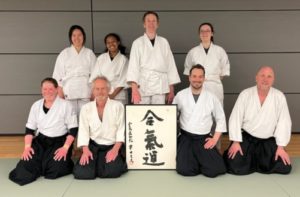About the Club

Founded in 1974 by the late Shihan Fumio Toyoda, the Northwestern University Aikido Club (formally Zanshinkan Dojo) is a club dedicated to practicing the martial art of aikido. All Northwestern undergraduates, graduate students, staff members, and faculty are welcome to join the club. No experience is necessary, and you may join during any time of the year.
Interested in aikido? Come and try out a few classes for free. Come to any class wearing free-moving athletic clothing that covers your knees, and we will get you started. You will be given basic instruction on falling and practicing safely during your first class. Feel free to e-mail us with any questions at NUaikido@gmail.com.
Class Schedule
(The information below is general; please see our front page for the most current practice information.)
The Aikido Club holds classes in the SPAC/HCSP facility in Studio 1B. We set up the mats prior to class, so please come a few minutes early. If you are new to Aikido or martial arts feel free to stop by any time to check out our practice. Occasionally there are days when SPAC/HCSP is closed and we do not have class, so double-check our Calendar before stopping by. We also train irregularly during the summer quarter; please contact us for additional schedule details.
If you decide to join, club dues are only $35 per quarter. (Note: these club dues were waived during 2020-23 due to the pandemic, and club dues policy for 2023-24 is currently under review.) Ranked members are expected to maintain a current membership with Shimbokukai, the larger Aikido organization with which we are affiliated. (Shimbokukai dues for ranked members are $65 per year.) Members may attend as few or as many classes per week as fits their schedule.
For information on our instructors please visit the People section.
About Aikido
 Aikido, “The Way of Harmony,” is a Japanese martial art, developed over the first third of the last century by Morihei Ueshiba. However, the roots of Aikido are much older, and many techniques are drawn from older martial arts traditions, particularly swordsmanship.
Aikido, “The Way of Harmony,” is a Japanese martial art, developed over the first third of the last century by Morihei Ueshiba. However, the roots of Aikido are much older, and many techniques are drawn from older martial arts traditions, particularly swordsmanship.
Aikido does not depend on raw speed or brute strength but rather emphasizes timing (kokyu), distance (ma-ai), and the extension of centered, whole-body energy ( kiai). In Aikido, we do not seek to destroy an attacker; rather, we destroy an attack, rendering it useless, through an almost infinite combination of 4 essential types of techniques: Dynamic throws (nage-waza), strikes (atemi-waza), pinning techniques (osae-waza) and joint locking techniques (kansetsu-waza).

Learning how to safely receive an attack is also part of Aikido and is key in studying more advanced techniques. Beginners are instructed first and foremost in how to fall safely and how to move the body properly, and are introduced to simple techniques which utilize these basic movements. Gradually, a greater intensity and complexity of Aikido practice is introduced, at a level suited to the individual student’s development.
Aikido is a martial art, meaning that can be an effective self-defense tool and that many of its techniques can cause serious injury to an attacker. However, the goal of Aikido is not to learn to fight or compete in sport. Instead, Aikido strives to develop a harmony with your own body and mind such that you can perceive and react to any situation. This can mean recognizing a dangerous situation and avoiding it entirely or disabling and redirecting an attacker in self defense.
Because much of Aikido’s basic body movement (tai-sabaki) is drawn from Japanese Swordsmanship, Aikido training at Northwestern University Aikido Club involves both empty-hand (toshu-waza) and weapons practice (buki-waza). The traditional Aikido training weapons – the wooden sword (bokken), wooden staff (jo) and wooden knife (tanto) – are utilized regularly.
As a Budo (martial Way of life) and not merely a physical art, Aikido stresses the peaceful resolution of conflict whenever possible. A confident, strong, courageous, and centered individual is the goal of Aikido training – the kind of person who does not need to fight and who can resolve conflict creatively and with compassion. In this manner, Aikido’s philosophy transmits the most noble teachings of the Samurai heritage: “True victory is victory over the self”.
Organization
Zanshinkan Dojo (the NU Aikido Club) is affiliated with Aikido World Headquarters (The Aikikai Foundation) through Aikido Shimbokukai.
While Zanshinkan Dojo is connected to all of the Aikido Shimbokukai dojos, through the legacy of the historical Shinjinkai organization we maintain especially close relationships with several regional dojos: Aikido Genseikan Dojo, Great Lakes Aikido Dojo, Mushinkan Kokyo Aikido, and Aikido Kenshin Dojo, as well as the urban Rinzai Zen temple Daiyuzenji and the rural Rinzai Zen monastery Korinji.
Supplementary Materials
Some supplementary materials (e.g., lists of exercises, names of techniques) for the Northwestern University Aikido Club can be found here.

